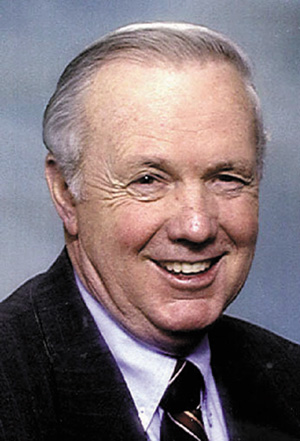No. 163 - MOUNTAIN TALK
No. 163
Jim Davidson...NEWSPAPER COLUMN
MOUNTAIN TALK
William Smith, the father of English geology, once said, "Language is the memory of the human race." In recent times, progress and advancement in education have altered the course of human history. When it could be truthfully said, "the pen was mightier than the sword," the fulcrum of power was no longer brute strength, but people's ability to use their native tongue with grace and ease. While America is a land of diverse peoples and cultures, our rich heritage is something we should always strive to preserve.
Several years ago I had the honor of being the speaker for the Yellville, Arkansas Chamber of Commerce Banquet. Yellville is a quiet little town on the Ozark plateau, not too far from the Missouri border. The morning following my speech I had breakfast at a little restaurant called the Cedar Inn. I understand it's no longer in business but back then their place mats contained something called Mountain Talk that I found to be very interesting.
Before I share a portion of this information with you, I would like to point out or at least emphasize that one of the greatest things about our country is that we have a common bond. Regardless of who our ancestors were or where they came from, what we do for a living, whether we are rich or poor, we are all Americans. We should take our responsibility seriously because we are all citizens of the greatest nation in the world.
Not only do we have a common bond, we also have a great diversity among our people which is also a great strength. As diversity relates to our language, millions of Americans speak languages in addition to English and many speak with an accent. Accents can reflect more than American's ethnic variety, they can reveal regional speech patterns as well. For example, I can't figure out why the folks in Boston think I talk funny. Mountain Talk, the article from the place mat that I want to share with you, contains regional sayings commonly used in the Ozark Mountain area. Some of you folks in the Mid-West, California, Washington and other areas where our collumn runs may find this a little more than unusual. Some of these sayings have roots in expressions found in England, Scotland and Ireland brought to this country by early settlers who lived in the mountain regions of the American South.
Here are some of the examples: A-fixin' means getting ready to do something. "We're a-fixin' to go to the store." Peaked means pale or sickly looking. "He's looking mighty peaked today." Fetch means to bring." "Go fetch the Doctor." Put-Out means angry or annoyed. "He shore was put-out about the meeting." Hesh-up means become quiet. "Make Jamie hesh-up." Clum means climbed. "I clum that hill for the last time."
Now, before I'm plum slap done, I would like to give you more of the sayings without the definitions and examples. You will probably be able to figure out some of them. Askeered of, doins, dast, holler, vittles, you'uns, cuttin' up, book read, fur piece, gully washer, lolly gag, crick, airish, kiver, skittish and smack dab.
These expressions have a way of touching my roots, and if you will think about it, you can probably trace yours back there too. You know, if we will take this line of thinking back far enough, we're all just chips off the old block. In all my years of speaking, the one thing I have learned is that if I want to be effective, I must speak in the language of those who are in the audience. I have found however, that clean humor is the one bond that unites us all. As Robert Louis Stevenson has said, "All speech, written or spoken, is a dead language until it finds a willing and prepared hearer." (Jim Davidson is a motivational speaker and syndicated columnist. You may contact him at 2 Bentley Drive, Conway, AR 72034.)
